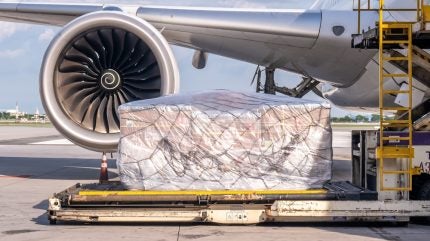
The Clean Clothes Campaign has criticised Inditex’s 2023 Annual Report, which revealed a 37% increase in transport-related CO2 emissions for 2023, reaching 2,000 kilo tonnes of CO2-equivalents.
The Clean Clothes Campaign said Inditex has focused on its transport-related emissions falling by 13% since 2018 and the company reducing the volume of its air freight by 25% in 2022.
But the campaigning organisation argued: “If this sounds good, unfortunately, that’s because it’s too good!”
The Clean Clothes Campaign suggested the 25% dip in 2022 was likely due to the loss of Inditex’s Russian market following the invasion of Ukraine, rather than a concerted effort to reduce air freight.
Inditex told Just Style that air freight makes up a “very small percentage of our transportation, with the majority being by road and sea.”
The company highlighted how in 2023 it set goals to halve emissions by 2023 and reach net zero by 20240 and says it is already making progress on this including the use of Sustainable Aviation Fuel for a significant portion of flights from Spain, where it is headquartered.
As a result of Inditex’s Climate Transition Plan, it shared how it has already reduced the emissions associated with its activities (scope 1 and 2) by 97% and has maintained scope 3 emissions in 2023 at the same level as in 2018 despite a strong increase in sales.
The Clean Clothes Campaign added that in February 2024 over 26,000 people signed a petition urging Inditex to stop transporting fashion items by air freight, citing the considerable damage to the climate.
Ahead of Inditex’s annual meeting on 9 July the campaigners called on the company and its shareholders to:
- Be honest about the carbon footprint and publish the data about cargo flights and emissions
- Begin a rapid and complete phase-out of airborne fashion. Set clear targets and draw up a phase-out strategy
- Redesign logistics systems so that they can function without these climate-damaging flights. Take the time pressure out of the business model and pay suppliers prices that cover the cost of sustainable production, including living wages
- Use profits to fund the transformation of Inditex.
In June Inditex bolstered its commitment to non-profit Canopy’s Pack4Good campaign by pledging to eliminate the use of ancient and endangered forests in its paper packaging and invest in Next Gen alternatives.



